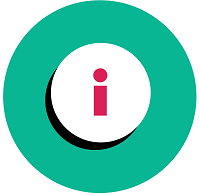Books
Finding a book on the area of law you are researching can be a great first step in better understanding the law and a great way to find primary authority, like statutes, regulations, and cases. 
Legal books come in different types. Some examples of books on the law are treatises, hornbooks, practice guides, legal encyclopedias, and self-help law books.
Treatises are books written by knowledgeable people, such as law professors, attorneys, or judges, that include detailed information on a legal topic. These books are written with people who have legal training in mind, so they are often long and use complicated language and legal terms. Read the material carefully. Treatises analyze and cite primary legal sources, like statutes, regulations, and/or case law. Tip: Don’t confuse the word “treatises” with the word “treaties.” While they sound and look similar, they have very different meanings.
Hornbooks are similar to treatises, but they are shorter and written with law students in mind. Like treatises, hornbooks include analyze the law and cite primary legal sources, like statutes, regulations, and/or case law.
Practice guides are written with practicing lawyers in mind. Practice guides are shorter and less detailed than treatises and will often include tips for lawyers handling a certain type of case. Like treatises and hornbooks, they will cite primary legal sources like statutes, administrative regulations, and/or case law. Good Iowa-specific practice guides on many topics can be found in the Iowa Practice Series, which is a series of books that focuses on Iowa law.
Legal encyclopedias cover many areas of law at a broad overview level. Legal encyclopedias will cite primary authority from many different states. Some states, like California, have legal encyclopedias that focus specifically on that state, but Iowa does not. Legal encyclopedias are written with attorneys in mind.
Self-help law books are different from the other types of books discussed here because they are written specifically for people who are not lawyers. Many self-help law books are published by a company called Nolo. 
When you use any of these types of books, make sure to check:
- How recently the book was published or updated
- Which jurisdictions the book covers
If a book is not recent or does not cover your jurisdiction, be careful how you use it. The law changes regularly, and some laws apply in one jurisdiction but not another. You do not want to rely on outdated information or information that does not apply to you. If you do not know how recent a book is or which jurisdictions the book covers, consider asking a law librarian for help.
When looking for books on legal topics, you can reach out to your local public library, which will likely have some self-help law books. If you do not find what you need at your local library, you can visit a law library or ask your local public library for help in requesting what you need through interlibrary loan. Interlibrary loan is a process where your library borrows a book from another library for you to use.
